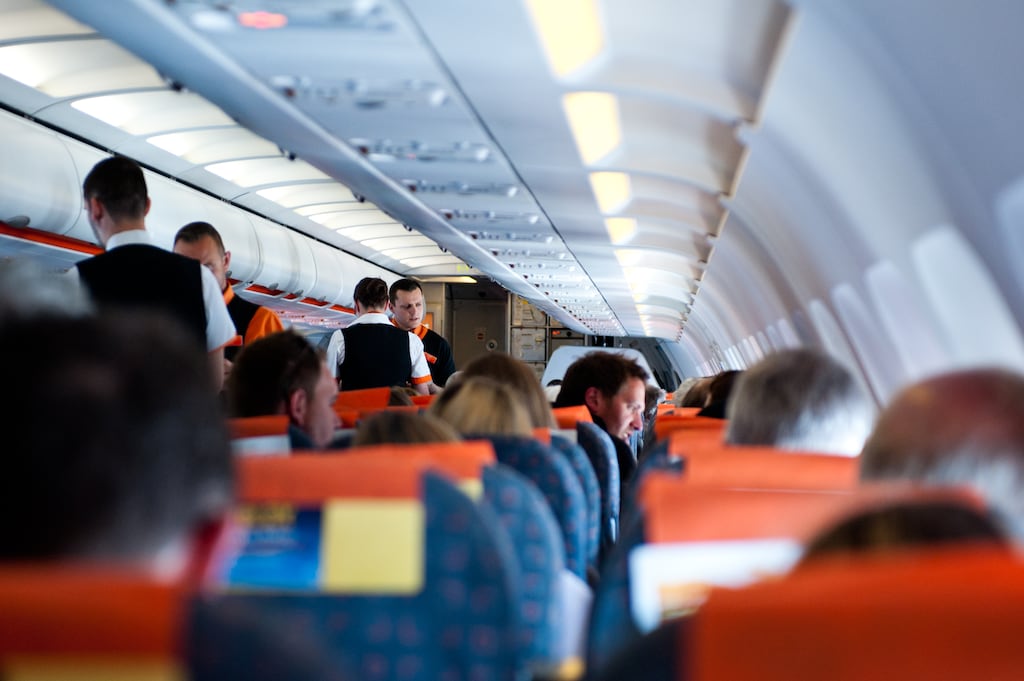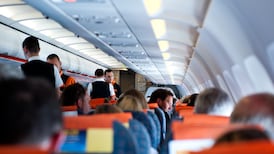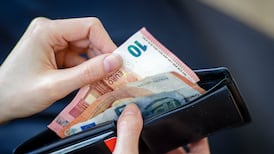Booked a flight lately? Some airlines are giving “mixed” and “misleading” messages about their sustainability, Europe’s consumer rights body, BEUC, has said.
You could be persuaded that flying was a good thing, such is the blather on some airline’s websites. With talk of “green fares”, “sustainable aviation fuels”, and projects to offset emissions, travellers can be led to believe flying is a sustainable form of transport not a highly polluting one, says BEUC, which is an umbrella group for 45 independent consumer organisations from 32 countries.
In 2023 BEUC and 23 of its members filed a complaint denouncing climate-related claims by 17 European airlines that it said were breaching consumer rules.
The European Commission and EU consumer authorities, including Ireland’s Competition and Consumer Protection Commission, last year sent letters to 20 airlines identifying several potentially misleading green claims and inviting them to get in line with EU law.
READ MORE
So what kind of “greenwashing”, as BEUC described it, is going on?
Some airlines are creating the wrong impression that by paying an additional fee to finance climate projects, or to support “greener” aviation fuels, consumers can balance out the CO2 emissions of flying, said the European Commission.
Some airlines are using the terms “green”, “sustainable”, or “responsible” in an “absolute” way, said the European Commission. Calling something green, doesn’t make it absolutely a good thing.
“Moving towards net-zero” – what does that claim mean? Airlines were using the phrase but not providing clear and verifiable commitments, targets or an independent monitoring system, the commission said.
The use of the term “sustainable aviation fuels” (SAF) was also problematic, said the commission. Some airlines are making a song and dance about SAF, without clearly justifying the environmental impact of such fuels.
[ We need a new type of green politics to rebuild a strong climate movementOpens in new window ]
Other airlines were providing consumers with a “calculator” for the CO2 emissions specific to their flight. Sufficient scientific proof that such a calculation was reliable, or how it was made, was missing, the commission said.
A number of successful cases in recent years have forced airlines to withdraw some of their claims. Lufthansa, Air France and Etihad Airways had used misleading claims about their environmental impact, the UK Advertising Standard Authority (ASA) ruled in December 2023.
Lufthansa’s phrase “fly more sustainably” could be interpreted as them having a lower environmental impact than alternative airlines, said the ASA. Lufthansa agreed to remove the phrase from future ads.
Air France used the phrase: “Committed to protecting the environment: travel better and sustainably.” But there was no evidence showing they were protecting the environment or making air travel more sustainable, the ASA ruled.
Etihad Airways used the phrase: “Explore the world with confidence and total peace of mind with Etihad Airways. Environmental advocacy. Award-winning service.”
There was no evidence the airline could offer consumers “total peace of mind” about the environmental impact, said the ASA. Etihad Airways removed the phrase “environmental advocacy” from future ads.
Virgin Atlantic Airways’ claim that it used “100 per cent sustainable aviation fuel” was misleading, the UK’s ASA ruled last year.
This year the Danish Consumer Ombudsman said KLM’s claim it was, “taking a big step towards travelling a little more sustainably” gave the impression flying KLM equals better environmental benefits than was the case.
Lufthansa was banned by the Cologne Regional Court from advertising that passengers could compensate their emissions by financing projects that would “either reduce carbon emissions in the future or remove them from the atmosphere”.
Because Lufthansa falsely gave the impression that a payment could make a flight carbon-neutral, the court decided the claims were misleading.
[ Two years ago we planted 24,000 native saplings – now our forest is thrivingOpens in new window ]
Pressure from consumer groups, civil society organisations and consumer protection authorities is making a difference, said BEUC this year, but “greenwashing” continues.
The majority of Europeans want to travel more sustainably. More than three quarters of respondents to a Eurobarometer study in April this year said when planning a regional or long-distance journey, the environmental impact is important to them.
Airlines know consumers are starting to feel some disquiet about an overheating planet. It is in their interest to assuage us of this and position flying as a sustainable transport rather than a highly polluting one. And so claims about “offsetting” and “green” goals continue.
So-called “green fares” are increasingly popular, says BEUC. Airlines that are part of the Lufthansa group registered a steady rise of such fares, which grant consumers extra miles or loyalty points, it says.
Airlines are never going to tell us that flying is not sustainable. Until the day boarding passes, like cigarette packets, are required to carry a warning, fly with your eyes open.













